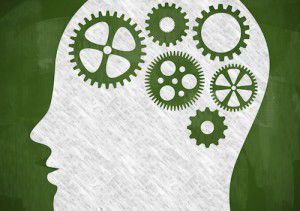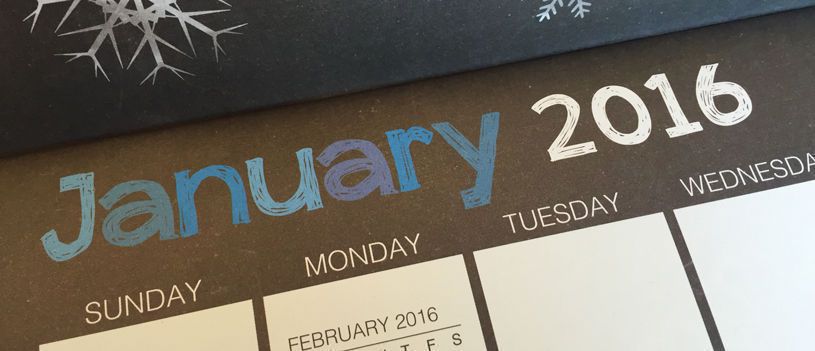4 reasons to learn a language this New Year
I don’t know about you, but I love New Year’s Eve. Not because of all the parties (twelve months ago I saw in the new year at home with a cup of tea, because I’m that cool), but because it’s a great time to set some new goals.
Of course, you can set goals any time, but there’s something special about the fresh start that comes with a new year. It’s like the first page of a brand new notebook; any previous failed attempts or mistakes are erased and you can start over with a clear target in mind.
Yesterday the British Council, supported by actor Larry Lamb, launched a #LearnALanguage campaign, which aims to get Brits learning a language in 2016.
And over 200 people will be doing just that with our free uTalk challenge, which starts tomorrow – learning everything from French to Wolof (there’s still time to join, by the way…).
But why should you learn a language this new year? Here are my top 4 reasons:
New friends
Everyone likes making new friends, and it’s a lot easier to do that if you speak the same language. Sometimes all it can take is one word to break the ice, so even if all you know is ‘hello’, ‘thank you’ or ‘where is the toilet?’ – hey, it’s a start. (And if you can speak a bit of Xhosa or Korean, it’s a great way to show off at parties and instantly become the coolest person in the room.)
New opportunities
The New Year is a time for new opportunities… and learning a language brings you so many. Travel the world. Get a new job. Meet the love of your life. As Larry Lamb says in this video, his enjoyment of languages directly led to his 40-year career as an actor – who knows where it could take you?
It’s good for your brain
A not so nice side effect of the New Year celebrations is the reminder that we’re a year older and time is passing far too terrifyingly quickly. So let’s grab the chance to help out our poor ageing brains; research has shown that bilingual people have better memories and are more successful at multitasking, and speaking a second language can delay the onset of dementia.
It’s fun
And sometimes, that’s the only reason you need. Discovering a new language and culture is one of the most fascinating and rewarding things you can do, and there really is nothing like the buzz you get the first time you have a conversation with someone – however basic – and the two of you understand each other.
So, which language will you learn in 2016?
Happy New Year everyone!
Liz
Is it possible to forget your native language?
I recently came back from a week long vacation in my home country, Romania. While there, I noticed something very interesting that I’m sure you’ll find as fascinating as I did.
I’ve been living in London for more than two years now and on a daily basis I only speak English. Well, I am currently learning my boyfriend’s language, Spanish, but that’s not really relevant for now. I do text and chat to my Romanian friends and my parents, and we sometimes speak on the phone, but 90% of the time I speak and think in English. Except when I have to count something in my head, that’s still Romanian – happens to you too?
 So anyway, when I went back I obviously sat and talked and went out with friends and family, and so I noticed that in longer conversation I was having trouble using complex words and expressions and that I was often translating my thoughts from English to Romanian. In that way, I found myself asking in a café if I can have some brown sugar – but in Romanian the expression is actually ‘can you give me some brown sugar’, so I got some weird looks and then realised how silly it sounded.
So anyway, when I went back I obviously sat and talked and went out with friends and family, and so I noticed that in longer conversation I was having trouble using complex words and expressions and that I was often translating my thoughts from English to Romanian. In that way, I found myself asking in a café if I can have some brown sugar – but in Romanian the expression is actually ‘can you give me some brown sugar’, so I got some weird looks and then realised how silly it sounded.
The way I see it is that the brain seems to keep the information and skills that you use on a daily basis ‘at the surface’ and puts the rest in a back drawer. So the longer the time is that you do not think about something, the further back it goes. And so we forget the surnames of the people we went to school with and whose names we were able to say alphabetically by heart at the time, we forget about that awful blind date we went on a few years ago, we forget what a certain place that we used to see every day looks like.
Now I understand a bit better why daily practice makes such a difference when learning something new, be it a language, a software program or playing a new instrument. Keeping the knowledge fresh in your brain allows easier access to it and so you’ll find it extremely handy when faced with the opportunity of using it.
If you are determined to learn a new language, even just 15-20 minutes a day can make a huge difference, especially if you’ve found a fun way to learn. Our uTalk app helps you practise your new language, it’s fun and it trains your memory to remember what it learned. And it has 128 languages to choose from!
Do you find you’re forgetting your native language? I hope I’m not the only one!
Ioana
3 surprising facts about the relationship between language and music
It’s often said that music is the “universal language of mankind”. Indeed, like language, music has great expressive power, and manages to convey a vast array of sentiments and emotions, even without the use of words. But just how connected are language and music? Research suggests that the relationship between the two may be even stronger than it appears at first glance. Let’s take a look at some of the surprising ways in which language and music are connected.

You’re not likely to confuse Beethoven’s Fifth for Lincoln’s second Inaugural Address, but music and language have more in common than you might think. Image via Derek Gleeson / Wikipedia
1. They share the same basic building blocks
Even on a very basic level, music and language are similar in that both are compositional. This means they are made of small parts that combine to create something larger and more meaningful; in other words, their whole is greater than the sum of their parts.
For example, languages consist of individual words that combine in meaningful ways to create sentences. In isolation, the words “I”, “you”, and “love” don’t mean much — but when combined into a sentence, “I love you”, suddenly they carry great importance.
Similarly, music — at its most basic level — consists of individual notes. Like words, these aren’t particularly meaningful by themselves: hearing an E flat in isolation likely won’t stir up any serious emotions. But when you combine the E flat with a C and a G, you have a C minor chord: something meaningful has been formed.
2. They involve the same areas of the brain
For decades, scientists have isolated specific brain regions that are responsible for the comprehension and production of language. One of the more notable regions is Broca’s area, which is located in the left-hemisphere frontal lobe and plays a crucial role in language comprehension and production. Specifically, Broca’s area seems to be responsible for our ability to use syntax —the structural rules that languages have so that sentences make sense.
Recent studies have also found that Broca’s area is crucial in the comprehension and analysis of music. Indeed, brain scans have found increased neural activity in Broca’s area when subjects heard and interpreted both speech and music. Further, research shows that, compared to non-musicians, musicians have a greater volume of grey matter in Broca’s area, suggesting that Broca’s area may be responsible for both speech and music.
3. Musical training can improve language skills

Image via Montserrat Labiaga Ferrer / flickr
In 2011, developmental psychologists from Justus-Liebig University in Germany conducted a study to examine the relationship between the development of music skills and language skills. To do this, they separated pre-schoolers into two groups, one of which received daily music lessons at school.
Later, they measured the pre-schoolers’ phonological awareness, which refers to their general ability to use and manipulate language. For example, children with good phonological awareness can recognize when words rhyme, can successfully identify individual sounds within words, and can blend together individual sounds to create words. Early phonological awareness has been shown to be a predictor of enhanced reading skills later in life.
The study found that the children who received daily music lessons ended up with higher levels of phonological awareness than those who did not. This suggests that the development of music skills and language skills go hand in hand, which makes sense if music and language are served by the same underlying brain areas.
As you can see, there are more parallels between language and music than meet the eye! On both a descriptive and neural level, language and music have a lot in common. As language learners, you can take advantage of this relationship by incorporating foreign-language music into your daily language-learning routine. In addition to providing you with great music to listen to, you’ll be exercising the same part of your brain that’s responsible for language skills.
Do you listen to music in your target language? What are some of your favorite foreign-language songs? Let us know — leave a comment!
Paul writes on behalf of Language Trainers, a language tutoring service that offers German classes in Dublin, as well as courses for other languages all throughout the world. You can check out their free foreign-language level tests and other language-learning resources on their website. Visit their Facebook page or contact paul@languagetrainers.com if you have any questions or if you’d like more information.
The benefits of being multilingual
Today, we’re welcoming back EuroTalk blogger Kirsty with some of the biggest benefits of learning other languages.
How has knowing more than one language helped you? Let us know in the comments!
1. It makes you cleverer
It has long been thought that learning another language, and being competent at it, indicates a high level of intelligence in individuals. Recently this has been proven, with studies on bilingual children showing they were much more developed than their peers, as well as a similar link being drawn between the results of teenagers at school and being able to speak two languages. This means your language learning is actually making you smarter!
2. It can prevent ageing and disease
 People who study an additional language have also been shown to have ‘younger’ brains than would be expected for their age. Cognitive ability, or how effective your brain is at functioning, is much higher in people over sixty that can speak two languages than those who can only speak one. Essentially language learning can prevent the likelihood of forgetfulness and ‘getting slower’ in old age. Learning a second language can also make your brain more resistant to diseases such as dementia and Alzheimer’s. A study conducted on a group of elderly people who spoke both Spanish and English demonstrated that they typically developed symptoms of Alzheimer’s much later than those who only spoke English. Who knew that learning a language might actually be able to prolong your memory and your life?
People who study an additional language have also been shown to have ‘younger’ brains than would be expected for their age. Cognitive ability, or how effective your brain is at functioning, is much higher in people over sixty that can speak two languages than those who can only speak one. Essentially language learning can prevent the likelihood of forgetfulness and ‘getting slower’ in old age. Learning a second language can also make your brain more resistant to diseases such as dementia and Alzheimer’s. A study conducted on a group of elderly people who spoke both Spanish and English demonstrated that they typically developed symptoms of Alzheimer’s much later than those who only spoke English. Who knew that learning a language might actually be able to prolong your memory and your life?
3. It allows you to explore more of the world
Alongside the multiple health benefits of language learning, speaking a second language also allows people to explore the world in a different way. Whilst anyone can visit a country it is the people who can speak the language who truly experience the culture. Basic competency in the language makes the locals more open to helping you and maybe even pointing you in the direction of the best places to visit away from the tourist hot spots. It is these ‘little gems’ that will be the part you remember most from your holiday, from the little hidden coffee shop in Rome to the underground bar in Paris.
4. It opens up new opportunities
There are six million people on earth, so why limit yourself by only speaking one language? New friends don’t just have to come from the same town, or even country, as you live in, but can come from all over the world. The easiest way to gain new friends across the world is to get a pen pal, and in the internet age you don’t even have to pay for stamps! There are lots of good websites that will set you up with a pen pal that speaks the language you’re learning, so why not put your new found language skills to use, make friends and learn even more.
What benefits of learning a second language have you discovered? Let us know!
Kirsty


